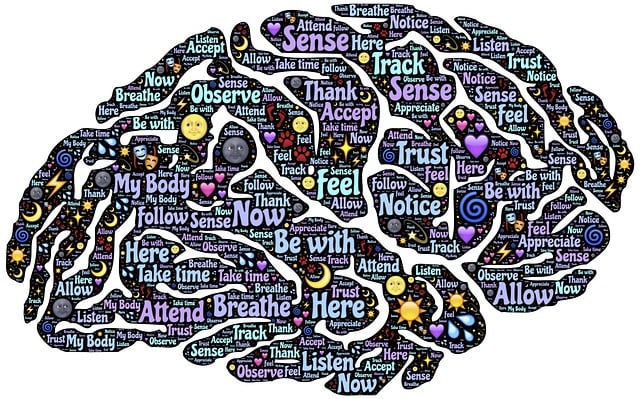Mindfulness, meditation, yoga, and holistic health programs are key to managing stress and improving overall well-being. By focusing on the present moment, integrating mindfulness into daily routines like yoga or mindful eating, and adopting balanced nutrition and sleep habits, individuals can achieve emotional balance. Yoga offers a comprehensive wellness approach with various styles catering to different needs, while complementary activities like Tai Chi and Qigong, combined with regular exercise and self-care practices such as hobbies and socializing, enhance life quality. Holistic health programs prioritize stress management through mindfulness and yoga, improving mental clarity and fostering inner peace, ultimately leading to healthier living.
Stress is an inevitable part of life, but managing it effectively is key to achieving overall well-being. This article explores powerful stress management techniques through diverse approaches tailored for holistic health. From cultivating present-moment awareness with mindfulness and meditation, to discovering yoga routines for relaxation, we delve into effective strategies. We also uncover the significance of nutrition, diet plans, and sleep wellness as cornerstones of a robust wellness plan. Additionally, learn how incorporating self-care habits into your daily routine fosters emotional balance, enabling you to lead a healthier, happier life.
- Mindfulness and Meditation: Techniques to Cultivate Present-Moment Awareness
- Yoga and Movement for Stress Relief: Exploring Different Routines
- Nutrition and Sleep: The Foundation of Holistic Health
- Incorporating Self-Care into Your Daily Routine: Cultivating Emotional Balance
Mindfulness and Meditation: Techniques to Cultivate Present-Moment Awareness

Mindfulness and meditation are powerful techniques to cultivate present-moment awareness, a key component in managing stress and enhancing overall well-being. These practices encourage individuals to focus on their senses, thoughts, and emotions without judgment, allowing them to disconnect from stressful thoughts and reestablish a sense of calm. By integrating mindfulness into daily routines, whether through formal meditation sessions or mindful activities like yoga or mindful eating, folks can improve their emotional balance and reduce the negative impact of stress.
Incorporating mindfulness practices into your wellness plan for healthier living involves dedicating even just a few minutes each day. Yoga routines, for instance, combine physical postures with breath control and mindfulness, promoting mental clarity and relaxation. Similarly, nutrition and diet plans that emphasize mindful eating encourage individuals to savor their food, recognize hunger cues, and become more attuned to their bodies’ needs, fostering a healthier relationship with food and contributing to overall stress reduction. Effective stress management strategies often intertwine with self-care habits and sleep wellness tips, creating a holistic health program that supports emotional balance and enhances the quality of life.
Yoga and Movement for Stress Relief: Exploring Different Routines

Yoga and movement play a pivotal role in stress management, offering a holistic health program that combines physical postures, breathing techniques, and mindfulness practices. Different yoga routines cater to various preferences and needs, making it an accessible wellness plan for healthier living. From gentle Hatha and restorative styles suitable for beginners or those seeking lower-impact exercise, to invigorating Vinyasa and powerful Ashtanga routines for advanced practitioners, there’s a yoga practice for everyone. Incorporating regular yoga sessions into your fitness and exercise program not only enhances flexibility and strength but also promotes emotional balance and mindfulness, integral components of any effective stress management strategy.
Complementing yoga, specific movement practices like Tai Chi, Qigong, or even brisk walking can significantly contribute to overall well-being. These activities help clear the mind, calm the body, and improve sleep wellness tips, which are crucial for maintaining emotional balance. Integrating nutrition and diet plans that support your physical activity into your wellness plans for healthier living further strengthens your stress management strategies. The combination of mindful movement, balanced eating, and self-care habits can transform your approach to stress, making it a manageable aspect of daily life rather than a overwhelming force.
Nutrition and Sleep: The Foundation of Holistic Health

Nutrition and sleep form the bedrock of any holistic health program. A well-rounded wellness plan for healthier living must prioritize balanced nutrition and adequate rest, as they are integral to managing stress and achieving emotional balance. Mindful dietary choices can significantly impact one’s overall well-being; incorporating nutritious foods into your diet supports both physical and mental health.
Quality sleep is another critical component of stress management strategies. Developing healthy sleep habits through structured routines, such as regular yoga or meditation sessions before bedtime, can enhance sleep wellness tips. Adequate rest allows the body to recharge, improves cognitive function, and fosters a sense of calm, contributing to a stronger ability to cope with daily stressors.
Incorporating Self-Care into Your Daily Routine: Cultivating Emotional Balance

Incorporating self-care into your daily routine is a cornerstone of any successful wellness plan for healthier living. Holistic health programs understand that emotional balance is just as important as physical fitness and cognitive well-being. Stress management strategies, like mindfulness practices and yoga routines, can significantly enhance one’s ability to navigate life’s challenges calmly and effectively. These practices not only reduce stress but also improve mental clarity and foster a sense of inner peace.
Nutrition and diet plans play a pivotal role in achieving emotional balance. A well-balanced diet that includes whole foods and adequate hydration supports both physical and mental health, contributing to overall wellness. Similarly, fitness and exercise programs release endorphins, which can boost mood and reduce stress levels. Self-care habits, such as dedicated time for hobbies, socializing, and relaxation, are essential in maintaining emotional equilibrium. Additionally, sleep wellness tips ensure that your body and mind have the opportunity to recharge, further promoting emotional balance.
Integrating stress management techniques into your wellness plan can significantly enhance your overall well-being. By incorporating mindfulness practices like meditation, yoga routines tailored to stress relief, balanced nutrition and diet plans, regular fitness and exercise programs, and cultivating self-care habits, you can achieve a holistic health program that promotes emotional balance and deepens sleep wellness. These strategies empower you to navigate life’s challenges with resilience, ensuring a healthier, happier, and more fulfilling life.
